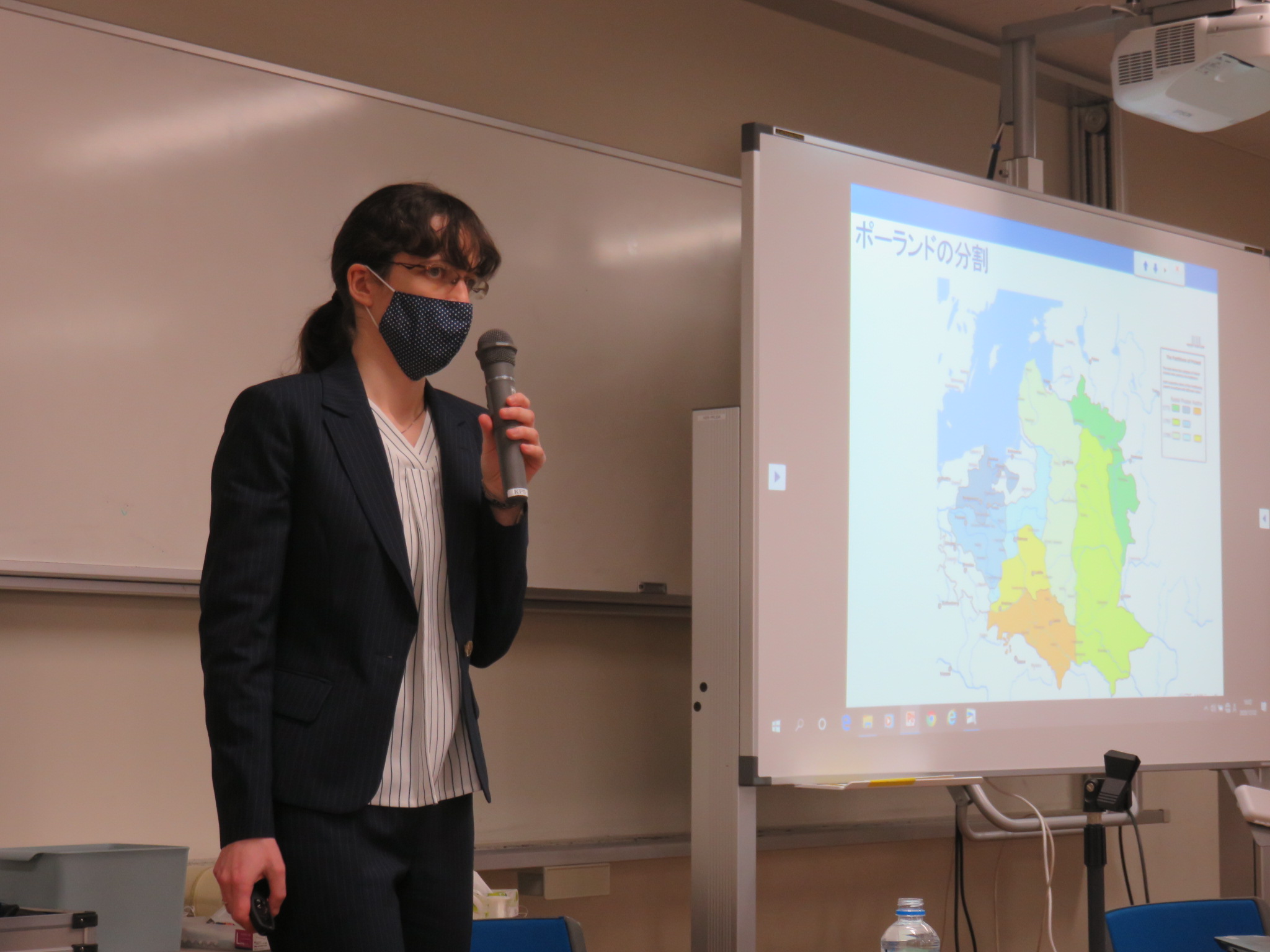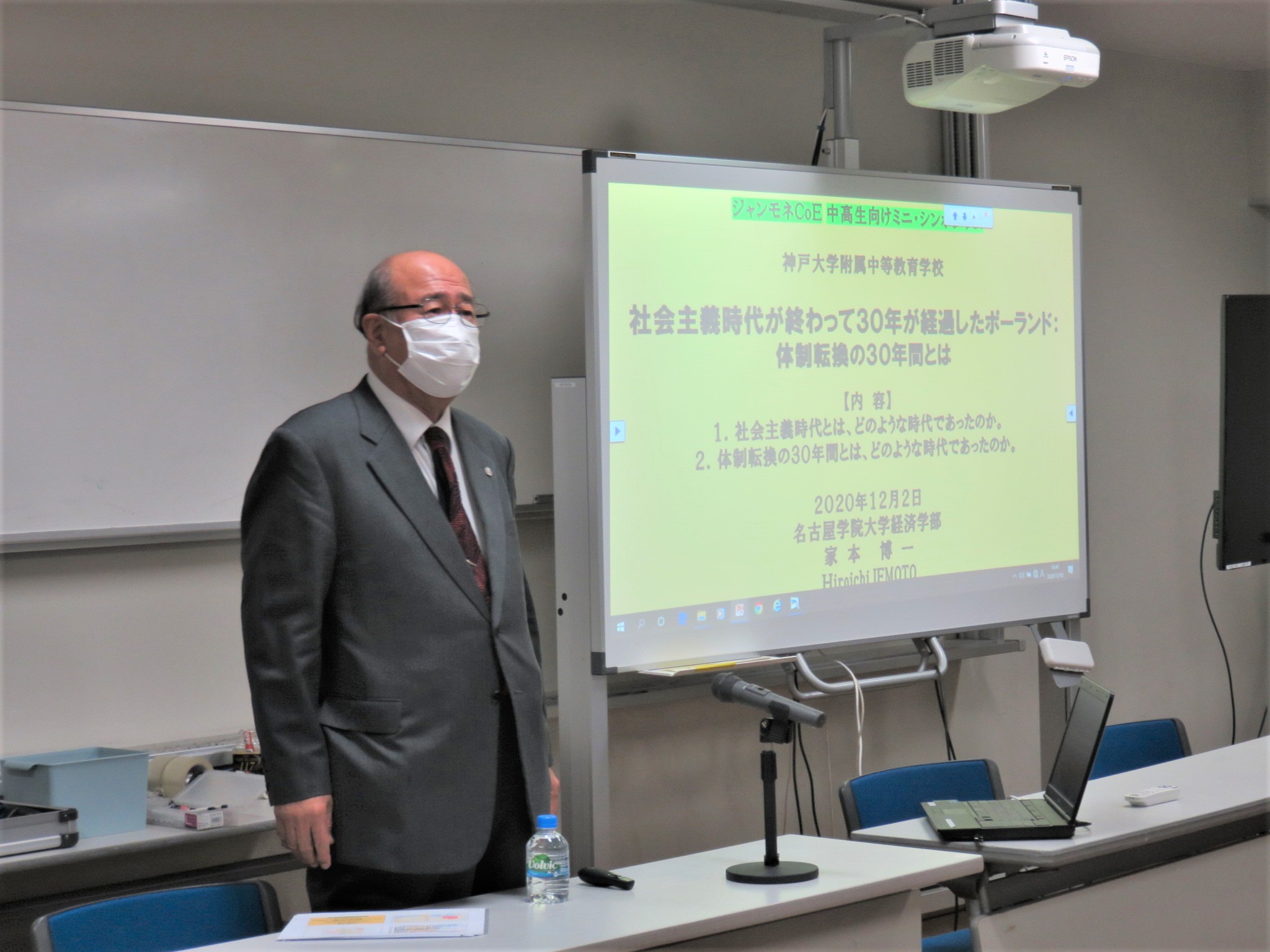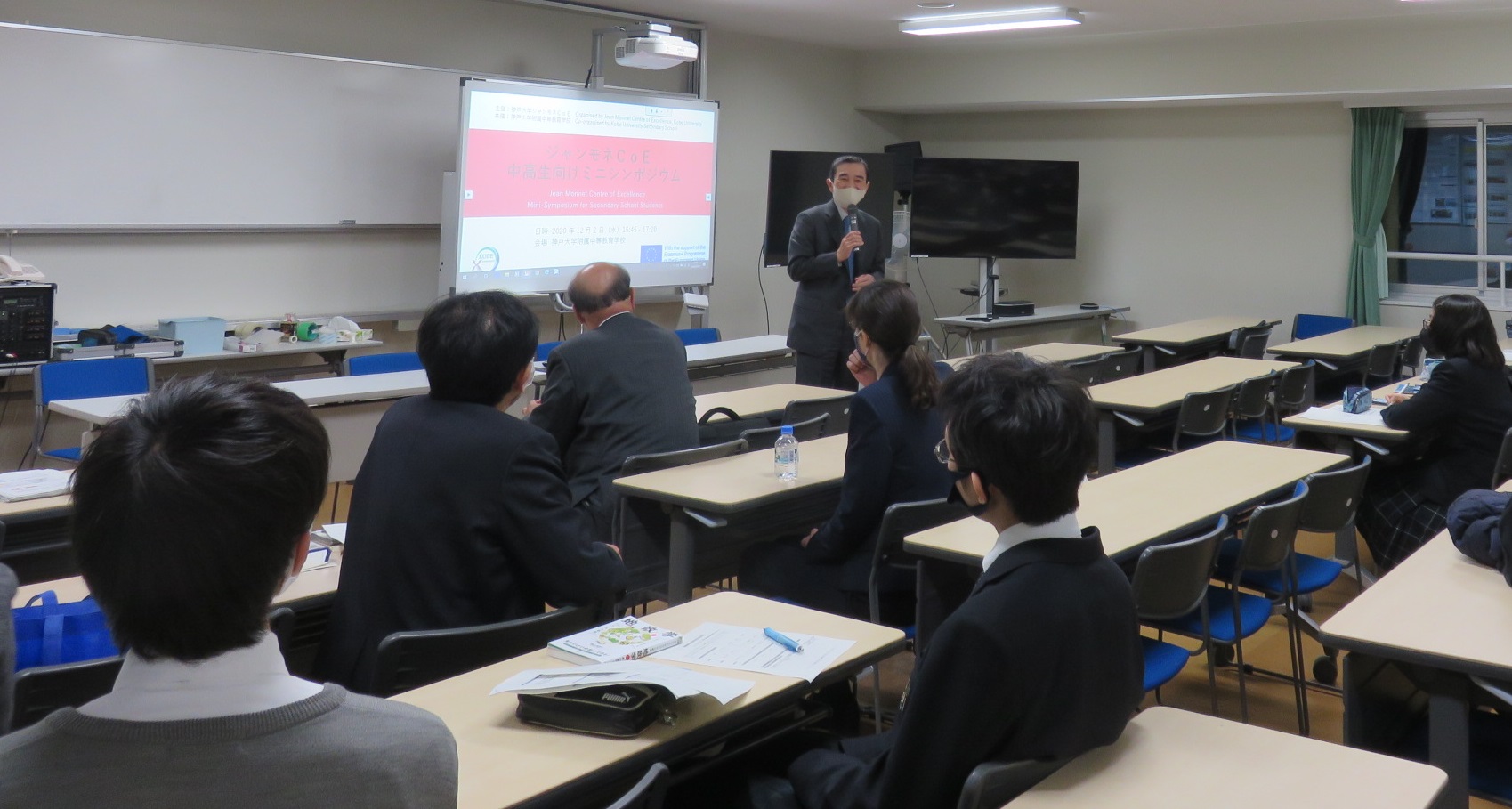Mini symposium for Kobe University Secondary School was held on 2 December, 2020
Kobe University Jean Monnet Centre of Excellence held a mini-symposium at Kobe University Secondary School on Wednesday, 2 December, 2020. Polish Associate Professor Agata Wierzbowska of Graduate School of Economics gave a lecture "From the Past to the Future of Japan-Poland Relations: in Commemoration of the 100th Anniversary since the Rescue of Siberian Orphans," and Professor Hiroichi Iemoto of Faculty of Economics, Nagoya Gakuin University, who has researched on the Polish economy for more than 40 years, gave another lecture "The Realities of Polish Systemic Transformation for 30 Years since the Collapse of Socialism."
Professor Wierzbowska shortly explained geography and history of Poland, and talked about the rescue activities by Japanese people of Polish children in Siberia, descendants of Polish who raised rebellions to the Russian Empire after the third Partitions of Poland in 1795 and transported to Siberia, and fell into miserable living conditions after the Russian Revolution in 1917. As she mentioned, in total 290 children were rescued and transferred to Japan between 1920 and 1922, lived peacefully in Tokyo and Osaka for several years, and returned to Poland. When Emperor Akihito visited Poland in 2002, three of them attended the reception party, and spoke their happy memories in Japan and expressed their heartful thanks to the emperor. She also introduced very good present Japan-Poland relationships in various fields.
Professor Iemoto told why he became interested in Poland at first, and explained the socialist system in Poland by picking up three key words: "All-mighty ruling party," "Coexistence of shortages and surpluses," and "Using Honne (real intention) and Tatemae (superficial reason) according to circumstances." As he mentioned, when socialism demised in 1989, Polish people had a fantasy that they could see a new rich society soon, but, the economic reform in 1990 instantly changed the fantasy into great disappointment, and the Polish society, politics, and economy became unstable. The EU accession in 2004, on the one hand, gave an economic success to Poland, but, on the other hand, caused massive emigrations to old EU countries, and widening gaps of employment, income, and wealth. Today, populism is a very big political problem in Poland. Thus, he added that to balance the increasing diversity and the widening wealth gaps is an urgent challenge for the Polish society.
The students asked questions related to each talk very actively in Q&A sessions.
36 students attended this event and the evaluation shows that they felt that the lectures were satisfactory and they may utilise this experience when they continue further studying the history and today's societal problems.




